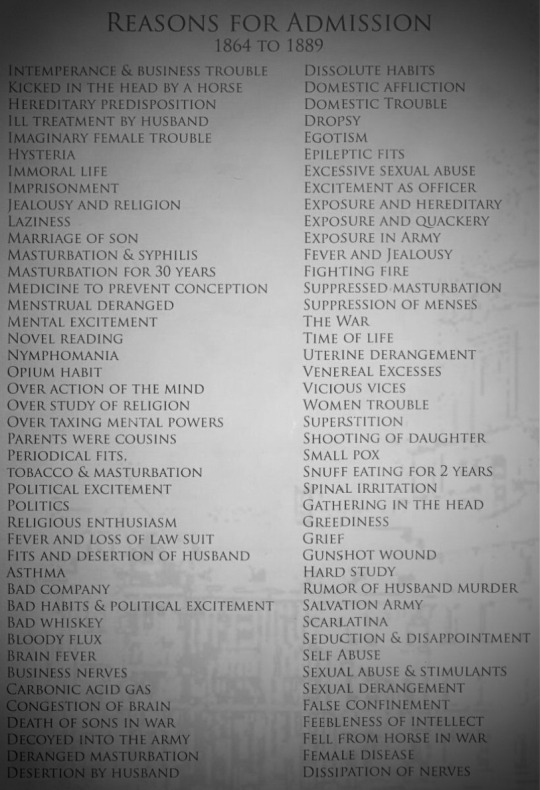Please look at these actual factual reasons people were committed to an asylum in the late nineteenth century.

I’m not even sure where to begin. First of all, how many of these are just being a woman who’s in her husband’s way? Female disease and woman trouble, ill treatment by husband (like, you know, being involuntarily committed), imaginary female trouble, hysteria. And of course rumor of husband murder. And maybe it’s my uterine derangement talking, but isn’t involuntary confinement what being committed to an asylum all about?
Plus there’s things beyond that that are totally objective. Politics, political excitement, religious enthusiasm, superstition, over action of the mind, and about a million other things that you can claim of anyone you don’t like. You better not study hard because if you do, bam, you’re getting committed. Don’t read any novels, either.
In truth, it’s actually a list of why some people were committed, i.e. their relatives said these were symptoms of their mental illness. Still though. People pretty much used anything as an excuse. Although shooting your daughter is a pretty good reason for being locked up.




